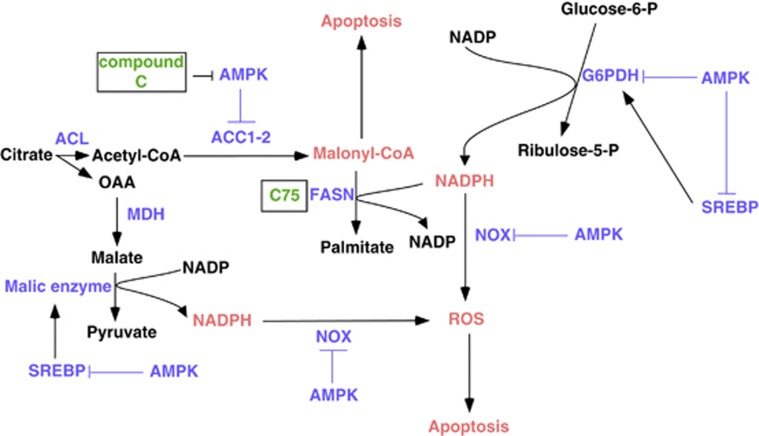Figure 7.
Hypothetical mechanism underlying the proposed metabolic therapy. Inhibition of AMPK, in the context of inactive FASN, influences several metabolic pathways. First, AMPK inhibition activates ACC-mediated malonyl-CoA formation, the accumulation of which has apoptotic effects. Second, AMPK inhibition results in the activation of SREBP and of ME and G6PDH enzymes, resulting in the accumulation of NADPH. Moreover, FASN inhibition leads to further accumulation of NADPH, which is not used as a substrate for de novo lipids synthesis. As the NOX enzyme is also activated as a result of AMPK inhibition, excess of NADPH substrate will be converted into ROS. Altogether, this results in an increased apoptosis in cancer cells.

